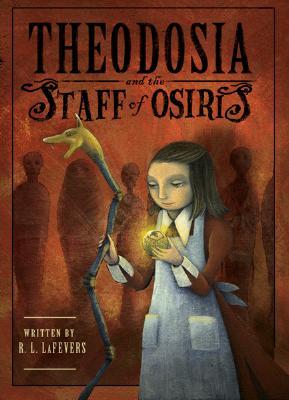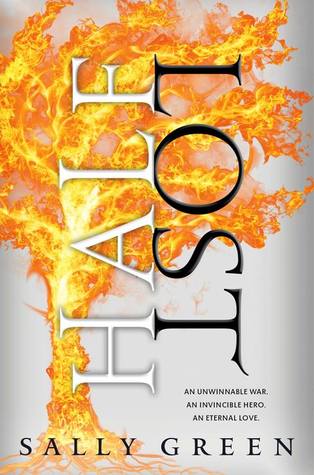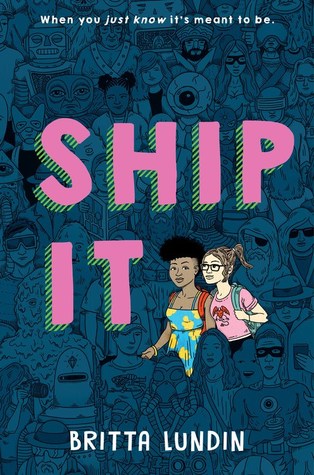Brisingr
by Christopher Paolini
Recommended Ages: 13+
[button color=”black” size=”big” link=”http://affiliates.abebooks.com/c/99844/77798/2029?u=http%3A%2F%2Fwww.abebooks.com%2Fservlet%2FSearchResults%3Fisbn%3D9789089680068″ target=”blank” ]Purchase here[/button]
Many things discouraged me from reading the third book of the Inheritance Cycle. There was the backlash against my mixed review of Book 2, Eldest—almost, but not quite, the harshest feedback I have received. There was the disappointment of the film based on Book 1, Eragon—a hint that there would be less pressure from fandom in general to stay on top of this series. And finally, there was the thickness of this book, which was supposed to be the finale of a trilogy—whereas, in spite of its length, it turned out to be the third movement in a quartet. This suggested that, at some crucial stage in its development, the storyline lost some of its planned momentum.
So, even with a hard copy of the book on my shelf, I felt no hurry to re-enter the world of Alagaesia, where there be dragons as well as elves, dwarves, magicians, and other wondrous things. I only felt its pull again when an audiobook narration by Gerald Doyle materialized, in answer to a prayer for something to play on the car stereo while driving several hours a day. And before I say anything else, let me be clear: Doyle delivers a fine performance. He even manages to make his repertoire of British dialects sound right for the story and its characters, though they sprang from the mind of an American author.
Also, the interview between Paolini and his editor at the end of the performance is a highlight of the album. It reminded me of the strength of the novel’s themes, the subtlety of its structure, the depth of its background (including the fabrication of several languages), and the vividness of the author’s insight into his characters, all of which tempted me to reconsider the mean things I had already planned to say about the book by that point. But although the tempo picked up a good bit toward the end of the book, my main impression of it remains the same. To wit: It has the potential to be a terrific book, if only it weren’t so dashed slow-paced and talky.
To put it another way, here is a conversation I had with myself at more than one point during at least the first two-thirds of this book:
QUESTION:
Oh no, are they really going to have this conversation now?
ANSWER:
Yes, they really are.
(A Bit Later)
QUESTION:
Are they really STILL having this conversation?
ANSWER:
Yes, indeed.
(A Bit Later)
QUESTION:
Is something interesting going to happen soon?
ANSWER:
Er…
I jotted this dialogue down at about the same time as the following snarky comments: “1) It’s like a great short novel, crammed into the dimensions of a long one. 2) Even when something exciting does happen, it seldom moves the series perceptibly closer to its final crisis. So it comes across as a book that the series as a whole could do without. 3) It has magic, bloodshed, horror, romance, mythical creatures, beautiful made-up languages, and a hero sworn to fight against an evil emperor. It’s amazing how the author manages to fit all these things in and still have room for points 1 and 2.” I now feel somewhat repentant about these jibes, though not repentant enough to keep them to myself. You should see the paragraphs I deleted. Well, no. You shouldn’t.
Actually, the book did get better after the point when I jotted down those notes. And by the end, young hero and dragon-rider Eragon had indeed made important progress towards his eventual goal (to be faced in Book 4, Inheritance) of ridding Alagaesia of its dark lord, Galbatorix. His cousin Roran also sees much development as a second-string hero, executing eye-popping feats of warriordom and proving (once again) to be far better at leading than following. Then there’s the big reveal about who Eragon’s father really is—and this after he has spent the whole book wrestling with the previous big reveal laid on him by his estranged friend (and brother?!) Murtagh at the end of Eldest. Whatever the truth is, these guys are going to have some serious issues to work out between them in the next book.
Nevertheless, a ruthless wit might say of this book that it can be boiled down to one line, which Eragon repeats several times: “I need a sword.” Indeed he does; and that need is driven home to him again and again until he himself is driven home (so to speak). And what a difference it makes when he gets the sword he needs. Everything else in the book could, by the same process of reduction, be described as irritating detours and intricately detailed accounts of what is going on “meanwhile, back at the camp.” The camp where the war to retake Alagaesia from Galbatorix’s Empire is heating up, and where the politics of the allied forces of humans, elves, and urgals proves to be dangerously hot already. Speaking of politics, there is also a side-trip to the kingdom of the dwarves, where a new king must be elected before the most ancient race in the land can decide whether to take part in the conflict of the age. And of course, Eragon must still learn new things about dragons, their riders, and what makes Galbatorix tick. There are a lot of threads to keep in play, a complex weave continuing to take shape. But my goodness, what a lot of talking goes on between the fits of violence and mayhem that make it all seem worthwhile!
Will Eragon be ready by Book 4 to face Galbatorix on his own? In a sense, he had better be. In another sense, he won’t have to be—because he won’t be alone. Besides his faithful dragon Saphira, he will also have friends and comrades from every race in the land, fighting behind him and beside him. But only he (or she) who makes it through some frustrating and (one might think) unnecessarily long conversations will appreciate just how ready and/or unready Eragon is at the end of this book. Don’t take this the wrong way. I have a better feeling about this series after reading this book than I did before. But no recommendation of this book would be completely honest without reminding you that the inner dialogue quoted above took place several times. For what it’s worth…




